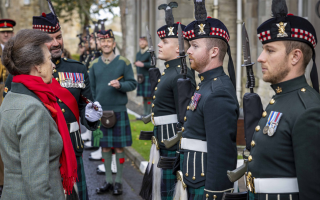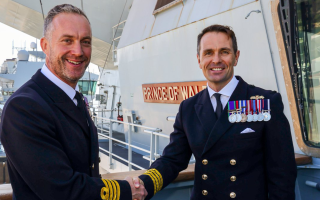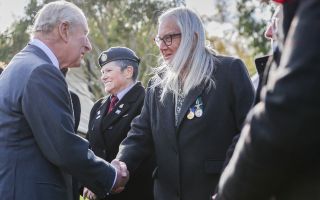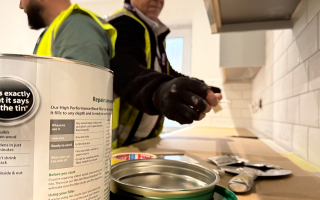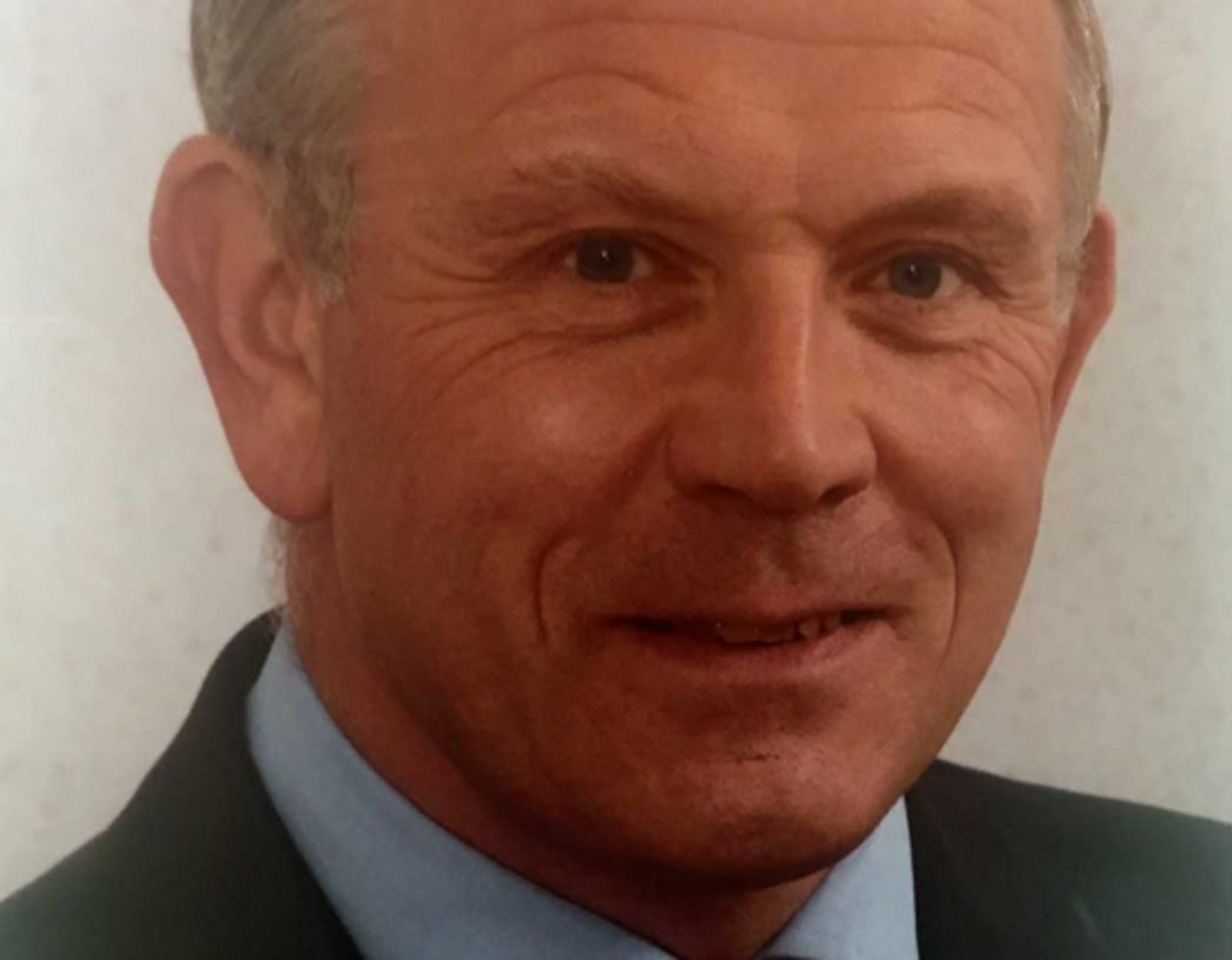
Lariam And PTSD: Impassioned Plea At Major General's Funeral

Major-General Alastair Duncan CBE DSO - A Tribute
For me Alastair Duncan has been a constant presence during the last 43 years, it was he who met me off the boat in Belfast in 1973 and I last saw him five weeks ago in Northampton.
In between, we served together as platoon commanders in England and Germany, as captains in the memorable Bulford days and as company commanders in Northern Ireland.
In Osnabruck in Germany, I was his first second in command and, thereafter, he visited everywhere we were - one of our few visitors in Kuwait and one of the many in Jamaica.
I have known his family throughout and I am Godfather to his son Ted and my wife, Caroline, is godmother to his daughter Bella.
I know very well then that he was the most admirable of men, a man’s man and a soldier’s officer, the latter very evident from the outpourings of respect and affection on Facebook, which have included:
"Top man and the best officer I ever served under."
"A great leader, motivator and human being. RIP Sir."
"A real hero to his troops who always had their backs, a truly great man."
"RIP again to top soldier, officer and a true gentleman, now in peace."
"One of the finest officers I ever had the privilege and honour to serve with."
"Best Commanding Officer I ever served under, Rest in Peace."
"Sir, your suffering is over, proud to have served with you."
And there were many profile pictures which were changed to a photo of that flag there flying at half-mast. The numbers here today tell a story too.
So much of this relates especially to his extraordinarily demanding and successful time in command of the 1st Battalion, The Prince of Wales’s Own Regiment of Yorkshire between 1991 and 1993, which included an operational tour in Belfast, for which he was awarded the OBE, followed only 12 months later by the tour in Bosnia for which he was decorated with the DSO, the only commanding officer of the regiment so rewarded since 1945.
Others, though, are much better placed to talk about these times and Lt Col Mick Haynes will speak directly after me.
So I will return to the essential Alastair, the young man I rather enviously saw execute a stylish handbrake turn outside the officers’ mess in Celle, the man with the elegant mother and urbane father, a regular soldier in an Indian Army rifle regiment, a man who grew up in a house in Norfolk where the kitchen door opened by itself after midnight and a man who clearly had a colourful time at school, a time which also included adventure as a bosun on the tall ship The Malcolm Miller.
I think the influence of his parents was very strong - hugely social they were also highly principled and brave. Once on a train in India at the time of partition, and at great risk to their own lives, they hid their bearer on the luggage rack just out of sight of a mob of hostile eyes.
Confident and very capable as a young officer Alastair was clearly destined for and would thoroughly deserve the good jobs he was continually appointed to, it wasn’t only his driving skills that made one a little envious.
And one could feel a little nervous too, there was a steely professional focus, long ago he once looked up from the adjutantal desk at the assistant adjutant and truthfully, if not very kindly, said “your trouble is, you don’t work fast enough.”
But this was always softened by the prospect of a party, he was great fun socially and I know that so many of the people present are here not just out of respect but out of real liking.
Naturally, the two are closely linked and a key to his character is that he truly cared about people, one reason the Bosnia tour was so traumatic for him, and he never changed - even latterly, as through a veil, he was most considerate of the nursing staff, and their affection for him was particularly evident.
There was also something eternally youthful about him, as a colonel at the Staff College he founded the Red Ink Chapter motorcycle club, he never grew out of black jeans and he was forever fascinated by gadgets and the latest innovations, he had the distinction of being the first commanding officer in three centuries to have a computer in his office, not much competition, I know, but it was typical that he was the first.
As always there are equal and opposite reactions, another side to every coin, and the last colonel of The Prince of Wales’s Own, this distinguished and highly decorated soldier, this wonderful man, who was so well regarded and who achieved so much, also suffered grievously in his life, not least in the last few years.
This is something which I must now touch on, in part because of all the publicity and what may still be received wisdom in some places.
In any event, it became evident that Alastair was not well seven years or so ago and he and Ellen went to great lengths to try and establish what was wrong.
Gradually, a jigsaw came together, the significant elements of which seemed to include blast injury from an anti-tank mine and post-traumatic stress disorder, in part a result of the shockingly difficult position of a United Nations commander in Bosnia largely powerless to prevent the surrounding brutality and atrocity, then made all the worse by subsequently having to relive it year after year, nine in all, at the Hague war crimes trials.
Now, since time immemorial many soldiers have suffered from PTSD, under its various names, and for centuries from the effects of blast, but for him there was clearly another more modern and severely compounding factor and we have virtually no doubt that this was the effects of the anti-malarial drug Methloquine, which he was officially noted as being allergic to.
Sadly, the mental health authorities diagnosed Alastair as simply having early onset Alzheimer’s and then resolutely set their collective face against any other interpretation - despite his reactions, expert advice and evidence, and a myriad of increasingly desperate entreaties; over 3 years they administered a series of different psychoactive medications, in plain English - mind altering drugs, 19 in the first 9 months of 2015 alone, all entirely involuntary of course.
Throughout, he fought against this treatment and his incarceration, drawing on his great reserves of determination and enormous physical and mental strength.
At last, they ran out of options and this year a different institution began the slow process of withdrawing the latest set of drugs. Only 5 weeks ago we were becoming increasingly optimistic as the man behind the veil began to re-emerge, when, suddenly an unrecognised and acute physical ailment took him, one which I cannot believe was entirely coincidental.
Now, it might have been more comfortable to have glossed over all this but there are many other people, especially ex Servicemen and women and their families, suffering similarly and there is a great sea of misery which must be drained.
Alastair was very clear about this, and we should be in no doubt that he understood what was happening to himself and to others, indeed he gave his permission for it to be brought to public notice.
There are some here today who are intensely committed to the rescue of these people and it is this work which we must hope will give meaning to all the indignity and suffering Alastair underwent and, now that he has been relieved of that, to our awful and untimely loss.
Before I close, I want to pay tribute to those who gave so much selfless support to Alastair, and to Ellen, in the long weeks, months and years of his, indeed their, battle. I have seen great compassion married to huge and consistent practical help.
Though I do not believe that anyone sitting amongst us would welcome being singled out I think I can acknowledge publically the unfailing Christian support of both the ministers taking this service.
But of course there is one other person I will mention and that is Ellen, Alastair’s wife, now widow, my sister. Her total commitment to Alastair’s welfare has been simply awe inspiring, just one example being the 17,000 or so miles she drove to visit him in Northampton between the 4th of January and the 24th of July.
The depth of her love was without limit and I take some considerable solace that, amongst the trauma of Alastair’s last years, there was also some considerable joy and happiness.
In closing, I think we should recognize two strands in this service today; the first inevitably is that of our regret for what he suffered and mourning for the man who has gone but the second is that it should also be an unreserved celebration of the man he was - both the huge achievements and the essential Alastair, an inseparable combination which inspired such respect and affection and which will be remembered for as long as any of us here are alive.
Colonel Charles Le Brun - 25th August 2016
MORE: A Soldier's Tribute: Major-General Alastair Duncan CBE DSO

